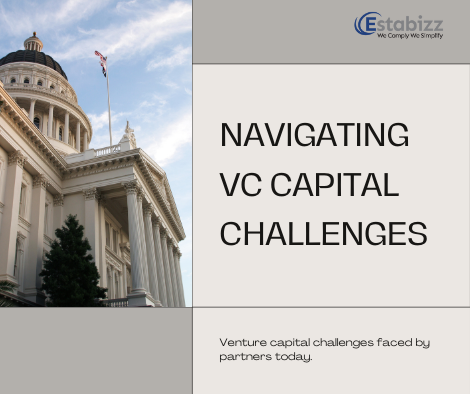How Departing VC Partners Fared: Navigating the Challenges of Raising Capital
Over the past year, several partners have left established venture capital (VC) firms to embark on their own entrepreneurial journeys. However, they are facing significant challenges in raising capital as they contend with investors currently attracted to the higher returns of public markets.

The Current Investment Climate
Investor Preferences and Market Conditions
- Limited Partners (LPs), who traditionally invest in VC funds managed by General Partners (GPs), are currently enjoying substantial returns from public markets.
- As highlighted by Sanjay Nayar, former CEO of KKR India and founder of Sorin Investments:
“LPs are very satisfied at this moment with the delivery of returns that are taking place in the public markets. If the stock markets give 25% returns and private about 15%, they wouldn’t see much scope here given that it’s illiquid and highly risky.”
- This trend has resulted in a slower pace of allocations to private markets.
Differing Perspectives
- Anup Jain, former managing partner of Orios Venture Partners, suggests that:
“A correction in the public markets is imminent. While the pool of domestic retail money is definitely there, it is currently making the most of the stock market rally.”
- Jain foresees a sell-off contingent on factors such as the US election results.
Challenges in Fundraising

Competition and Allocation
- Many departing partners, including those from notable firms like Sorin, managed to raise capital swiftly due to commitments from domestic sources.
- Yet, others face extended timelines and fierce competition within the fundraising arena. Policies against backing first-time fund managers compound these difficulties.
- LPs prefer consolidating their investments, choosing to allocate larger sums to fewer, more established managers.
Notable Departures and Niche Opportunities
- Prominent members transitioning to start their own funds include key figures such as Nexus’ Sameer Brij Verma and Peak XV’s Piyush Gupta.
- Fund managers often leave to capitalize on niche opportunities, driven by the growth of startups and issues within their previous firms.
Internal Dynamics and Emerging Opportunities
Historical and Contemporary Trends
- The VC landscape has witnessed similar trends before, with the emergence of firms like Helion, Nexus, and Sequoia India around two decades ago.
- Recently, new GPs have created sector-specific and stage-specific funds to leverage the burgeoning startup ecosystem.
Catalyst for Departures
- Internal conflicts and governance issues also drive partners to leave established firms.
- Goyal of Stellaris Venture Partners remarked on the necessity for a fairness-driven reset in commercial arrangements among partners.
Corporate Governance and Its Impact on Track Records
Governance Lapses
- Governance issues in portfolio companies can severely affect the track record of fund managers, impacting their ability to raise additional rounds of funding.
- Recent examples include startups like Byju’s and GoMechanic, which have faced significant scrutiny and backlash.
Importance of Track Records
- Metrics such as Internal Rate of Return (IRR), Distribution to Paid-In Capital (DPI), and Multiple on Invested Capital (MOIC) are critical in evaluating an investor’s performance.
- Limited partners, wary of adverse records, favour experienced managers with proven track records from prominent VC firms.
Legal and Operational Challenges
Legal Restrictions
- Fund managers can confront legal hurdles. In 2019, Everstone Capital took legal action against a former employee for attempting to leverage their past track record improperly.
Proving New Track Records
- GPs need to establish their performance metrics anew, focusing on “cash in, cash out” criteria.
- As pointed out by Alok Goyal:
“The only real measure of success is cash in, cash out. That’s why we focus on metrics like DPI and TVPI (total value to paid-in capital). Until cash is fully delivered to LPs, nothing is proven.”
Internal Team Dynamics
- Differing visions among team members can lead to splits, impacting the firm’s stability and success.
Conclusion
The landscape for venture capital fundraising is increasingly complex, influenced by public market performance, stringent LP allocation policies, and internal dynamics within firms. However, opportunities abound for those who navigate these challenges effectively. Emerging managers must demonstrate resilience and a keen understanding of market needs to establish successful, enduring funds.
- Market Dynamics: Strong public market returns influence LP preferences, slowing allocations to private markets.
- Fundraising Challenges: New firms face extended timelines and competition; niche opportunities must be leveraged strategically.
- Internal Conflicts: Departures often stem from fairness issues and internal governance concerns.
- Track Record Criticality: Proven performance remains a vital parameter for gaining LP confidence.
- Emerging Trends: Sector-specific and stage-specific funds are promising avenues in the evolving VC landscape.
With Estabizz Fintech by your side, navigating these challenges becomes manageable, ensuring your business is well-positioned for growth and success in the global market.
Estabizz Fintech compiled the material in this article using the most recent Acts, Rules, Circulars, Notifications, Provisions, Press Releases, and material applicable at the time. They ensured the completeness and correctness of the material through due diligence. When using this material, users must consult the relevant, applicable legislation. The given data may change without prior notice and does not constitute professional advice. Estabizz Fintech disclaims all liability for any results from the use of this material.




